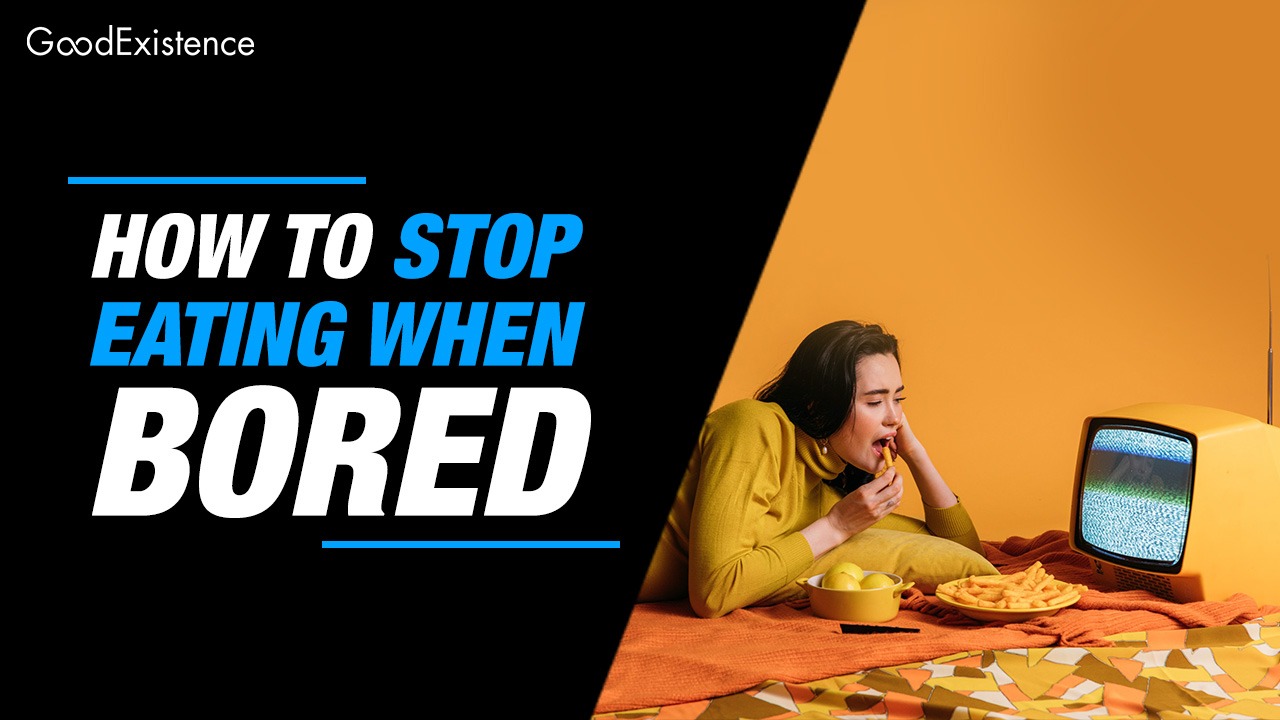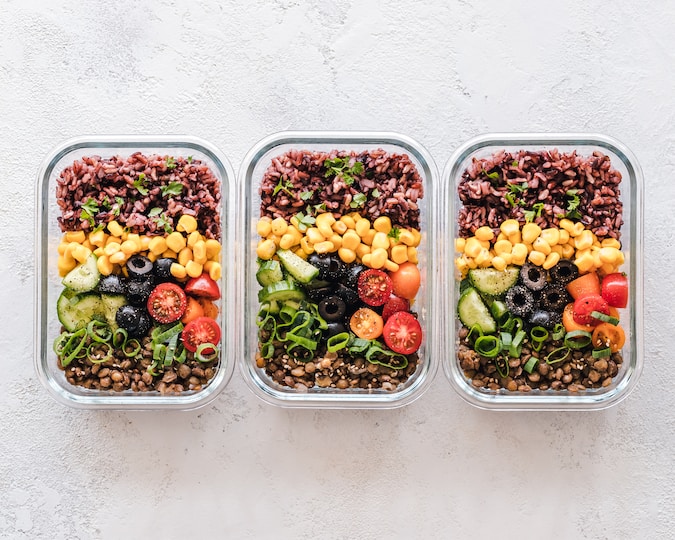We’ve all been there – mindlessly reaching for snacks when boredom strikes. It’s a common habit that often leads to overeating and unwanted weight gain. In this article, we’ll explore effective strategies and learn how to stop eating when bored and develop healthier habits.

Understanding the Connection Between Boredom and Eating
The Science Behind Boredom Eating
Eating out of boredom isn’t solely due to physical hunger, as it’s frequently influenced by emotions.Research shows that when we’re bored, our brain seeks out rewards, and food can provide that instant gratification.
This can lead to consuming unnecessary calories without even realizing it. Understanding the psychological aspect of boredom eating is crucial in addressing the issue.
Emotional Eating vs. Physical Hunger
It’s essential to differentiate between emotional eating and genuine physical hunger. Emotional eating occurs when we eat in response to emotions like boredom, stress, or sadness, and not because our body needs nourishment. Physical hunger, on the other hand, is a natural response to our body’s need for nourishment.
Recognizing this distinction is the first step towards curbing boredom eating. Learning to identify your emotional triggers and respond to them differently is key to breaking the cycle.
Are you struggling with overeating when you’re bored? Here are seven tips to help you stop this habit:
How to Stop Binge Eating When Bored
1. Stay Hydrated

Drinking water throughout the day can help reduce false hunger signals. Often, our body mistakes thirst for hunger.
Keeping a water bottle handy and sipping water can keep unnecessary snacking at bay.
Additionally, staying hydrated supports overall bodily functions, aiding in digestion and promoting a sense of fullness.
2. Keep Yourself Distracted

Engaging in activities that capture your attention can divert your mind from food.
Whether it’s reading the Bible, or a random book, solving puzzles, exercising or even going for a walk, these distractions can help break the habit of turning to snacks out of boredom.
By immersing yourself in an engaging task, you give your brain the stimulation it craves, making the urge to eat less appealing.
3. Plan Your Meals and Snacks

Having structured meal and snack times can create a routine that reduces the likelihood of boredom eating. When you know when your next meal is, you’re less likely to reach for a snack impulsively, this allows you to quit boredom snacking and maintain a healthy diet.
Planning your meals also allows you to make balanced and nutritious choices, preventing extreme hunger and subsequent overeating.
4. Stock Up on Healthy Snacks

If you find yourself genuinely hungry between meals, opt for nutritious snacks like fruits, vegetables, or nuts. Having these readily available makes it easier to make healthier choices when the urge to eat strikes.
Keeping a variety of wholesome snacks on hand not only satisfies cravings but also provides essential nutrients for your body’s needs.
5. Practice Mindful Eating

When you do eat, do it mindfully. Being conscious of the flavors, textures, and sensations of every bite you savor is truly significant. This practice not only helps you enjoy your food more but also makes you more aware of your body’s signals of fullness.
Mindful eating encourages you to savor every mouthful, promoting a sense of satisfaction that may prevent overindulgence.
6. Find Alternative Rewards

Instead of turning to food for comfort or entertainment, explore other ways to reward yourself. It could be trying a new hobby, spending time with loved ones, or achieving a personal goal.
Engaging in fulfilling activities can prevent emotional eating due to boredom.
7. Set SMART Goals

Specific, Measurable, Achievable, Relevant, and Time-bound (SMART) goals can help you stay focused on breaking the habit of eating when bored.
Create goals related to your eating patterns and track your progress. For instance, you might set a goal to have at least three distraction activities ready for when boredom strikes, allowing you to measure your success in managing those moments.
How To Stop Eating When Bored: Conclusion
Breaking the cycle of eating when bored requires awareness, mindfulness, and a willingness to replace old habits with healthier alternatives.
By understanding the connection between emotions and eating, staying hydrated, and engaging in mindful distractions, you can regain control over your eating habits and promote a healthier relationship with food.
Remember, addressing boredom eating is about making gradual changes and finding what works best for you. Using these strategies can help you take charge of your eating habits and reach your health objectives.
How to Avoid Eating When Bored – Frequently Asked Questions
Is boredom eating the same as emotional eating?
Boredom eating and emotional eating share similarities, but boredom eating specifically occurs when you’re seeking stimulation or distraction.
Can drinking water really help curb boredom eating?
Yes, staying hydrated can help prevent mistaking thirst for hunger and reduce unnecessary snacking.
Are all snacks bad for boredom eating?
No, not all snacks are the same or have the same nutritional values. Opt for nutritious options like fruits, veggies, or nuts to satisfy hunger without consuming empty calories.
How can mindful eating make a difference?
Mindful eating encourages you to savor each bite, helping you recognize fullness and prevent overeating.
What are some effective ways to prevent eating out of boredom?
Consistency is key. Implementing healthy habits, staying mindful, and finding alternative activities can collectively help you overcome boredom eating tendencies.
What are some ways I can get my friends or family involved in helping me overcome boredom eating?
Share your goals with them and ask for their support in finding activities or distractions when boredom strikes.
What should I do if I slip up and give in to boredom eating?
It’s okay to have setbacks. Use them as learning experiences, and get back on track with your strategies to stop eating when bored.
How do I differentiate between actual hunger and boredom-induced cravings?
Take a moment to assess your feelings. If you’re not truly hungry but looking for distraction, it’s likely boredom prompting the craving.
Can boredom eating lead to an increase in weight over time?
Yes, frequently eating when bored can contribute to unwanted weight gain. Learning how to stop eating when bored is essential for maintaining a healthy weight.
I’m struggling to stop eating sugar, especially when I’m feeling bored or binge eating. Do you have any suggestions on how I can overcome this?
When boredom strikes, engage in activities that divert your attention, like reading a book, praying, exercising, doing something productive, or going for a walk to overcome sugar cravings.
In addition, it’s a good idea to keep healthy snacks like fruit or nuts on hand to help curb any cravings you may have.
See also in Addictions
20 Warning Signs of Perfectionism Addiction
20 Tips for Building a Sober Social Life
20 Tips for Managing Screen Time
30 Ways to Break Information Overload
15 Steps to Overcome FOMO
10 Signs of Smartphone Addiction and How to Break It